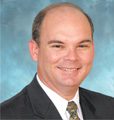
The goal of every elected official should be constant accessibility to you to discuss any and all issues, especially those items that impact our quality of life. So you can imagine the difficulty for those same elected officials to do the exact opposite on zoning matters; to advise that they cannot talk to anyone about a development project.
This may seem inconsistent, but it’s not. This is the rule that elected officials must adhere to in order to protect the zoning process from unfair influence. The specific rule is commonly referred to as the “Jennings Rule,” arising out of the decision of Jennings v. Dade County.
It is a rule that has been in effect since 1991 when the local appeals court ruled that all ex parte (outside of the public hearing) communications with elected officials in zoning matters were prohibited. Talking with your elected official, even simply stating an opinion about a pending zoning matter seems harmless enough, but the court has determined such communications to be “inherently improper.” The very existence of any outside communications creates a rebuttable presumption of prejudice and can unravel the decision of a council.
The court stated that any private communications violate due process rights. Any official who violates this rule risks more than personal sanctions, but in fact places the entire decision at risk of being overturned on appeal. If judicial action regarding a prohibited communication is pursued, the zoning decision can be declared null and void and the aggrieved party will be entitled to a new hearing unless the presumption is successfully rebutted by the city.
So why put any zoning decision at risk of being overturned?
Remember, each member of your village council wears two hats. The first is legislative, setting the policy upon which Palmetto Bay is operated. Everyone has the right to expect open and ongoing communication, personal and direct with the members of the Palmetto Bay council.
The second is zoning hearing officer, a proceeding commonly referred to a “quasi-judicial” where your council member is now sitting as a judge on a legal proceeding. This is where the relationship changes and the only permitted contact is in the open, at the public zoning hearing, no outside, “ ex parte” communications are allowed.
Ex partecommunications include any communications outside those made on the record at the public hearing. Examples include supplying written information, whether provided by mail, personal delivery, email, and/or faxes. It obviously includes oral communications, whether off the cuff at a local gathering place, a telephone call or at a private or even public meeting outside the forum of the hearing on the specific application. Any such communication is prohibited.
Every party, applicant or opponent, has a right to a fair hearing on the merits, free from outside influences.
The founding Palmetto Bay council enacted its own ordinance in 2003, applicable to all village quasi-judicial hearings on applications for zoning or other land development hearings. The section is Article IV, Quasi-Judicial Hearing Procedures. It is intended to eliminate the presumption of prejudice that may result from ex partecommunications, providing a procedure for addressing such communications.
This ordinance requires that disclosures be made at the commencement of the hearing. Anyone who has been to a zoning hearing has heard each council member make their disclosures, which include whether they have been personally out to the view the applicant’s property. When a disclosure is required, the village official is required to disclose the name of the communicator, and the time, place and substance of the communication.
A written communication that relates to a quasi-judicial action pending before the official shall be made a part of the record. Any written communications received should be transmitted to the clerk with instructions that they be made a part of the record on the matter and be available for public inspection.
The code is listed on the village website at <www.palmettobay-fl.gov>. Email me at <eugeneflinn@aol.com> and I will provide a direct link to this section as well as to the full Jennings v. Dade County decision.
Please feel free to contact me or any other former member of the village council to discuss any questions in detail on any matter you cannot discuss with a current member of the council. Former council members Ed Feller, Linda Robinson, John Breder and Paul Neidhart would all be available to discuss this process with you.
Remember, failure to adhere to these rules carries strict penalties and may nullify the ultimate decision reached by your village council. Maintaining fair and open proceedings are essential not only to legal validity of the administrative regulation but also to maintain public confidence in this important governmental hearing process.
Eugene Flinn is the founding mayor of Palmetto Bay, having served from 2002 until term limited in 2010. Are you receiving the periodic e-newsletter featuring Eugene Flinn’s South Dade Updates? These e-news provide updates on activities, events and issues affecting our area. Visit Eugene Flinn’s blog at www.eugeneflinn.blogspot.com or send email to him at EugeneFlinn@aol.com.







Comments are closed.